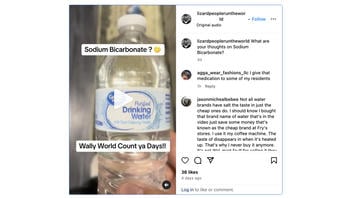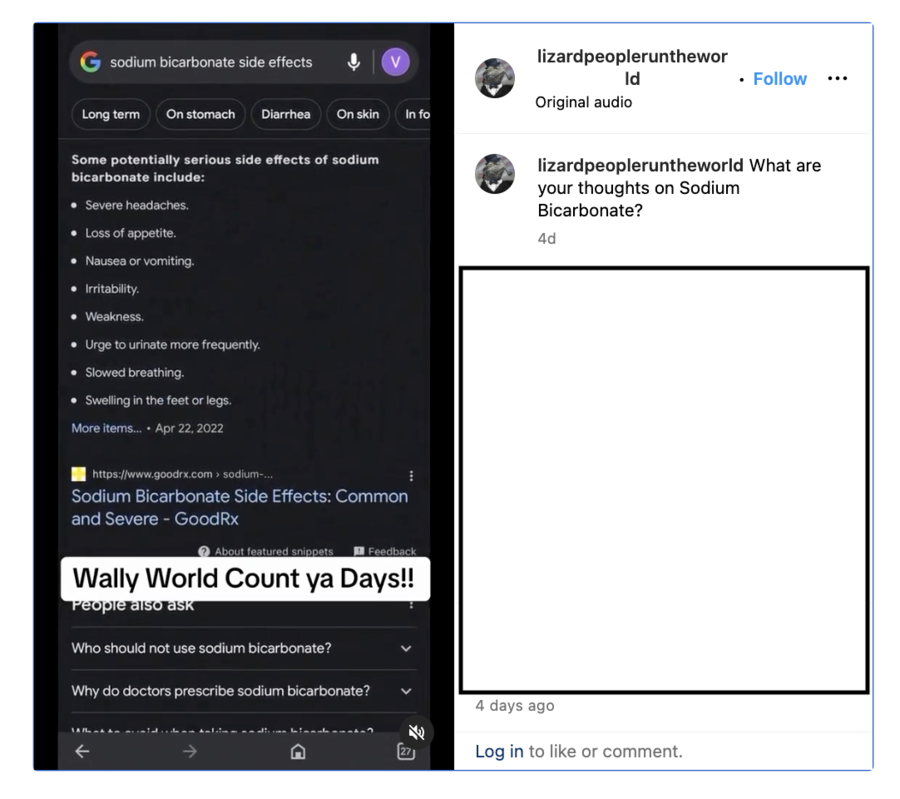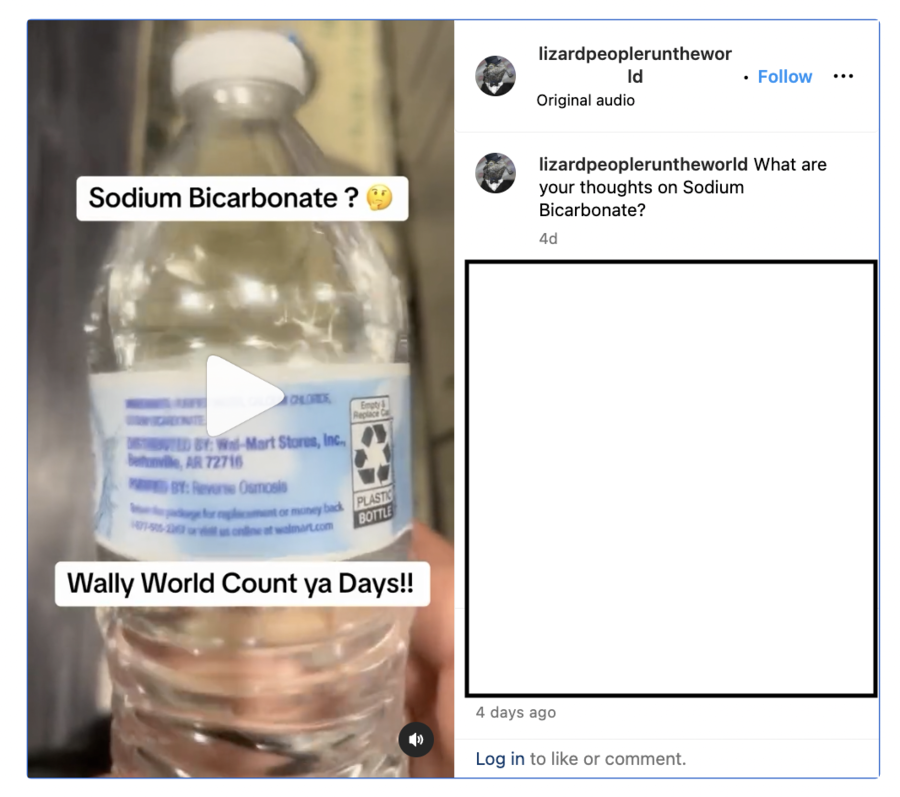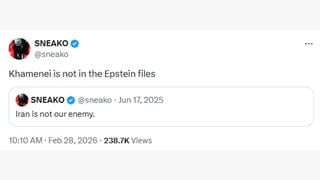
Does sodium bicarbonate in bottled water pose significant health risks? No, that's not true: This element is commonly known as baking soda, which is chemically salt. The Food and Drug Administration considers sodium bicarbonate safe to be used in food.
The claim appeared in a post (archived here) on Instagram on March 2, 2024. It opened:
What are your thoughts on Sodium Bicarbonate?
This is what the post looked like on Instagram at the time of writing:
(Source: Instagram screenshot taken on Thu Mar 7 15:23:25 2024 UTC)
The video showed a water bottle with a label listing sodium bicarbonate as one of the ingredients. Then, the clip cut away to a page displaying Google search results, implying that drinking water containing this element may cause "severe side effects":
 (Source: Instagram screenshot taken on Thu Mar 7 18:44:05 2024 UTC)
(Source: Instagram screenshot taken on Thu Mar 7 18:44:05 2024 UTC)
Sodium bicarbonate, however, is not a mysterious chemical. It is baking soda (archived here), which, in turn, is a type of salt.
The Food and Drug Administration categorizes sodium bicarbonate in the generally recognized as safe group. The agency's conclusion reads:
There is no evidence in the available information on [substance] that demonstrates, or suggests reasonable grounds to suspect, a hazard to the public...
Sodium bicarbonate is one of the elements that may naturally occur in water.
While its concentration may significantly vary depending on the specific source of water supply, the World Health Organization writes that people start feeling the distinctive taste of it at the concentration of 420 milligrams/liter (archived here).
Given that the bottled water that appeared in the post on Instagram (archived here) was not mineral water (archived here), which typically has a much stronger, specific bitter-salty taste, the concentration of sodium bicarbonate in it is likely to be around this level at most. Or -- even more likely -- to be significantly less than that.
In 2014, Time (archived here) interviewed Marion Nestle (archived here), a professor of nutrition, food studies, and public health at New York University, and Bob Mahler (archived here), a soil science and water quality professor at the University of Idaho, to address some of the most common additives in bottled water. The article concluded that concentrations of sodium bicarbonate in bottled water "are likely too small to be of much significance."
The GoodRx article (archived here) cited in the post on Instagram didn't discuss the side effects of sodium bicarbonate in drinking water -- it addressed side effects that may occur if people overconsume this substance sold in the form of tablets as an over-the-counter relief for acid reflux symptoms. That could occur only if a person ingested massive amounts of such pills dissolved in water. For example, when sodium bicarbonate is not mixed with other medication, the maximum daily dose for adults below the age of 60 is 48 pills, each containing 325 milligrams of the active ingredient.
If the bottled water from the post on Instagram contained 420 milligrams of sodium bicarbonate per liter, that would mean that a person would need to consume more than 37 liters (almost 10 gallons) of it in 24 hours to exceed the maximum safe dose described in the GoodRx piece. That's an unrealistic scenario because people don't drink this much water in one day.
Other Lead Stories fact checks about health can be found here.



















